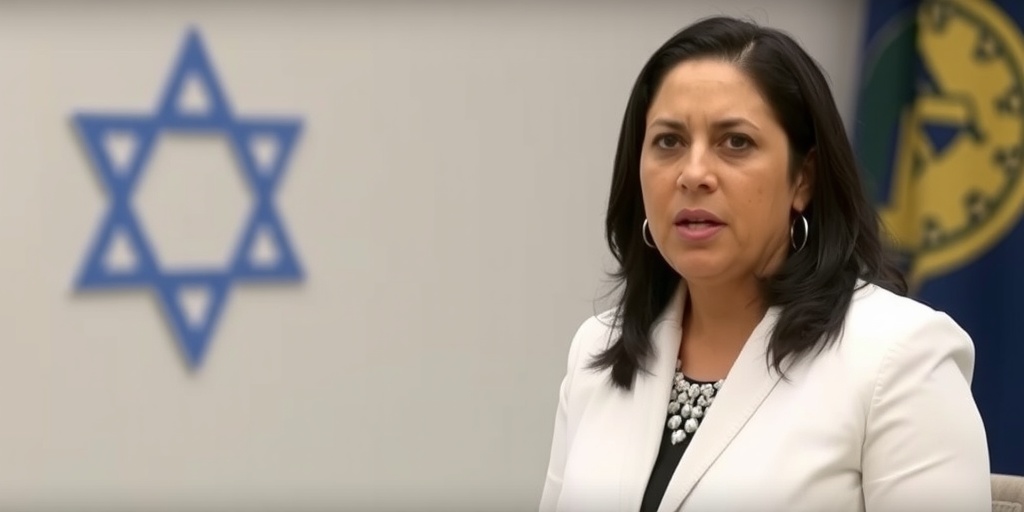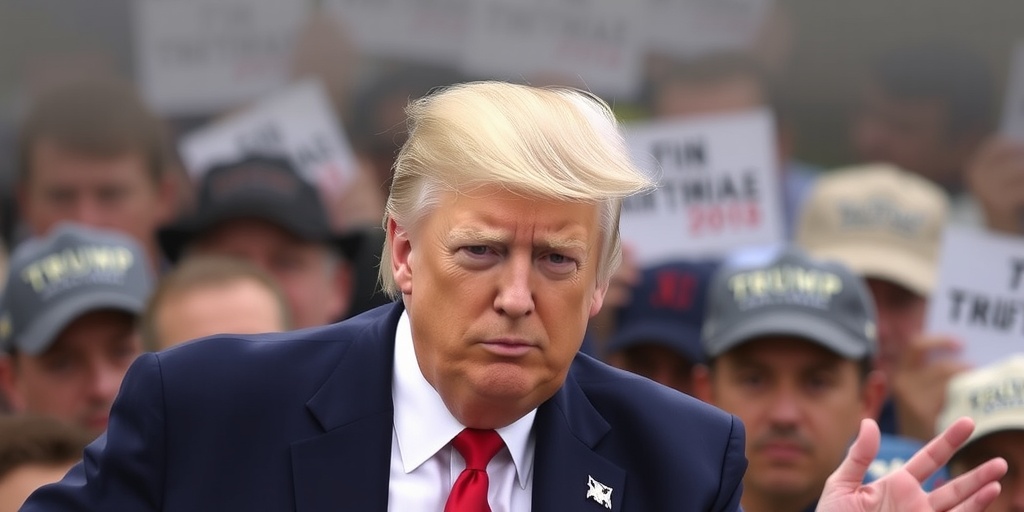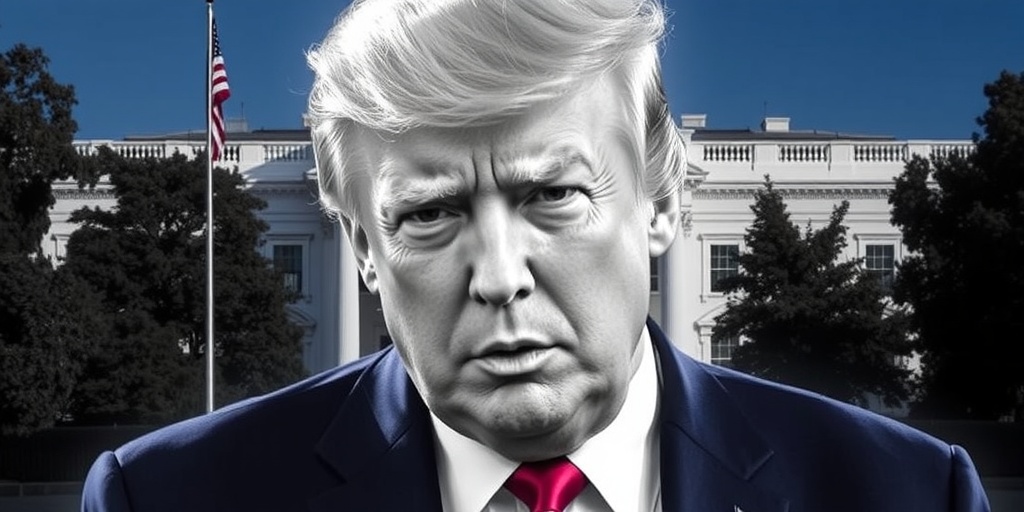Now Reading: Gabbard Weighs Critic of Israel’s Gaza War for Intel Position
-
01
Gabbard Weighs Critic of Israel’s Gaza War for Intel Position
Gabbard Weighs Critic of Israel’s Gaza War for Intel Position

Tulsi Gabbard Considers Controversial Appointment for Top Intelligence Role Amid Criticism
Tulsi Gabbard, the newly appointed director of national intelligence, is reportedly contemplating the selection of Daniel Davis, a seasoned senior fellow at a Washington think tank known for his skepticism toward U.S. intervention in international conflicts, for a key position within her team. This consideration has raised eyebrows among President Trump’s coalition and sparked significant pushback, as Davis has been critical of Israel’s military actions in Gaza, a stance that some feel could undermine U.S. support for Israel.
Davis is currently undergoing a background check to take on the role of deputy director for mission integration, a significant position within the intelligence community responsible for managing the President’s Daily Brief, a crucial document that provides the President and key policymakers with vital intelligence assessments. The intensity of the deliberations surrounding this appointment reflects an emerging rift within the Trump administration’s foreign policy approach, pitting traditional hawkish elements against leaders advocating for a more restrained U.S. military posture globally.
The backlash against Davis’s potential appointment has been palpable, with some right-leaning members of Trump’s coalition expressing their deep discontent. Many fear that his critical views regarding the recent Gaza conflict could jeopardize the administration’s unwavering support for Israel, a vital ally in the Middle East. As the deliberations continue, it remains uncertain whether President Trump and Gabbard will proceed with the appointment or reconsider given the pressing concerns from various factions within the party.
Despite past practices where senior CIA analysts with extensive experience were regularly chosen for the briefing role, such as Robert Cardillo who was a prominent figure during the previous administration, the current administration presents a contrasting landscape. The selection of Davis, who is affiliated with Defense Priorities—a think tank backed by the Charles Koch network known for its anti-intervention stance—could represent a significant pivot in the Trump administration’s foreign policy direction.
Critics have raised alarm over Davis’s previous statements and critiques of Israel. The Anti-Defamation League (ADL) labeled his potential appointment as “extremely dangerous,” claiming that Davis has minimized Hamas’s October 7, 2023, attack and jeopardized American support for Israel. Furthermore, notable conservative hawks within Congress are pressing the administration to reconsider this selection, arguing that Davis’s views do not align with the prevailing party ideology and could be detrimental to U.S.-Israel relations.
Former intelligence officials have echoed these concerns. Marc Polymeropoulos, a former CIA operations officer, criticized Davis’s positions as not reflective of the contemporary Republican Party’s consensus. He emphasized that Davis’s overt criticism of Israel, particularly in the context of military action against Iran, contrasts sharply with the current administration’s policy framework.
Davis and his allies strongly defend his stance, asserting there is no evidence of antisemitism or an opposition to Israel in his previous work. They argue that his skepticism towards military engagements arises from a concern for U.S. interests and a reluctance to engage in proxy wars when American troops are not deployed. His focus on the humanitarian aspects affecting Palestinians resonates with a segment of progressive Democrats, indicating potential ideological overlap that could complicate party dynamics.
In his public statements, Davis has articulated concerns regarding the humanitarian crisis in Gaza, referring to proposals for the removal of Palestinians from the region as “ethnic cleansing.” He has also voiced that U.S. support for Israel’s military actions in Gaza represents a “stain on our character as a nation.” These controversial remarks have not only contributed to his growing notoriety but also solidified opposition from more traditional conservative circles focused on unwavering support for Israel.
As the Trump administration navigates this complex political landscape, the tension surrounding Davis’s potential role highlights broader philosophical divides within the party. On one side are the hawkish voices advocating for strong support of allies like Israel, while on the other are those, including Gabbard and Davis, who are increasingly vocal about the consequences of military interventions and the necessity of prioritizing humanitarian concerns.
While Gabbard has remained largely silent on the recent developments in Gaza, her alignment with Davis on several foreign policy issues—such as skepticism towards American military aid and intervention efforts—indicates a potential reshaping of the administration’s approach to international conflicts. Davis’s social media activity has often mirrored Gabbard’s positions, fostering speculation that his appointment could signal a broader shift in the administration’s foreign policy stance.
As deliberations on this contentious appointment continue, it remains to be seen whether the Trump administration will bridge its internal divides or if Davis’s candidacy will ultimately contribute to further factionalism among the President’s supporters. This potential appointment not only underscores the complexities facing the administration but also reveals a transformative moment in Republican foreign policy discourse.
Stay Informed With the Latest & Most Important News
Previous Post
Next Post
-
 01New technology breakthrough has everyone talking right now
01New technology breakthrough has everyone talking right now -
 02Unbelievable life hack everyone needs to try today
02Unbelievable life hack everyone needs to try today -
 03Fascinating discovery found buried deep beneath the ocean
03Fascinating discovery found buried deep beneath the ocean -
 04Man invents genius device that solves everyday problems
04Man invents genius device that solves everyday problems -
 05Shocking discovery that changes what we know forever
05Shocking discovery that changes what we know forever -
 06Internet goes wild over celebrity’s unexpected fashion choice
06Internet goes wild over celebrity’s unexpected fashion choice -
 07Rare animal sighting stuns scientists and wildlife lovers
07Rare animal sighting stuns scientists and wildlife lovers





















